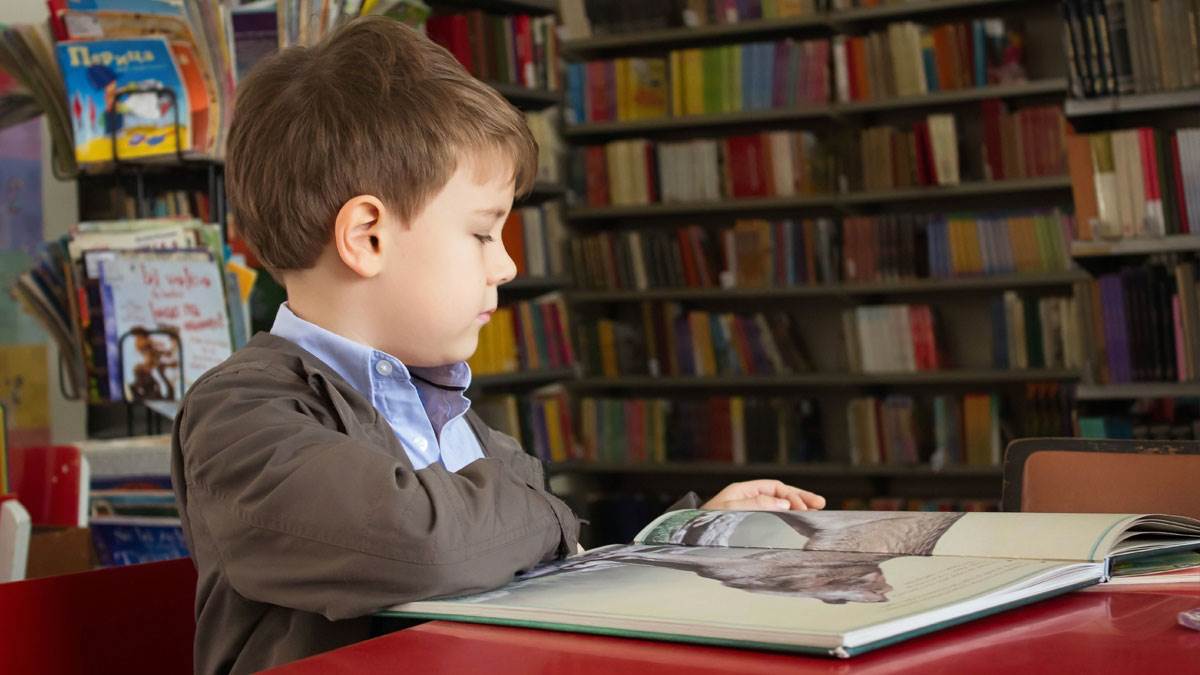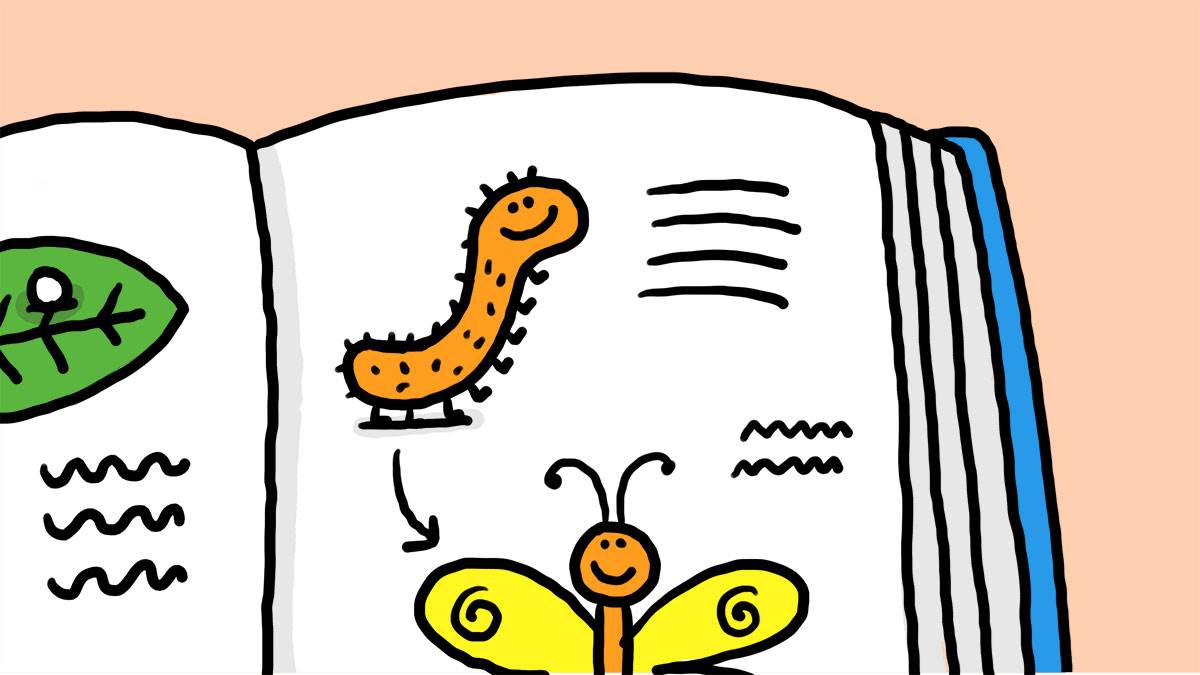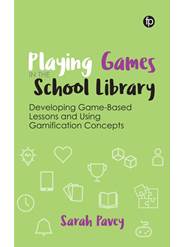Five games for children to play in their school library
Published on: 09 June 2022
The library is for everyone - but not everyone loves the library! Education consultant Sarah Pavey shares five simple games that primary school children can play in their library that encourage reading - even for those less interested in books.
 A little boy in the school library
A little boy in the school library
Today in the library it’s a reading lesson - but not everyone is interested in sitting and reading quietly. Maybe it's time to consider a different approach.
Could we play a game instead?
During the COVID lockdown I explored the concept of game-based learning and gamification for my book Playing Games in the School Library (2021). I gathered case studies from around the world including activities promoting reading for pleasure. These ranged from simple speech and language skills, pen and paper, to the latest high-tech apps and video games. The book compliments my online course for the School Library Association (2022).
Here are some of my favourite games to play in the school library - and why they're a success.
1. Toy Night in the Library
The students were asked to bring their favourite toy to school and to leave it overnight in the library. The next day the toys whispered what they had done when left alone and the students wrote down their adventures and shared them with the class.
Although this was done by 6 to 7 year old students in the case study, more recently a librarian used the exercise with a sixth form class creative writing class with much success. This type of game engages because it helps show the link between reading text, writing stories and oracy. It is fun and encourages students to be imaginative and creative. However, we should be mindful that some neurodiverse students might find this exercise challenging and for them we may need to make adjustments, such as suggesting they listen to others relate tales first before their own attempt at writing.
2. Figment AR
Have you ever been so absorbed in a book that time seems to pass in an instant? This is called a “state of flow” and good readers appear to achieve this effortlessly. Others may take a bit more encouragement.
We could use one of the amazing digital apps that are available for free, for example Figment. Imagine you are reading The Narnia series. How cool would it be to actually walk through a wardrobe door and then explore this world? With Figment you can do just that. You attach a 360 degree photograph (there are plenty available on the internet) to a portal. You place the virtual door using your mobile device in the classroom and then as you physically walk towards the portal you jump into the photograph world. Wow! The students can then explore and describe what they see or you may choose to adapt the photograph and hide objects within it giving clues to the story. The immersive experience can bring stories to life in an unforgettable experience.
 Illustration: Jim Smith
Illustration: Jim Smith
3. Reading for Bookworms
What makes a good read? How do we know whether we will enjoy a book we choose?
These competencies are important for emerging independent readers to practice. Enter the bookworm game. Each student is given a worm to look after which has a penchant for a certain genre of fiction book (a paper version in case you were wondering!). Students comb the shelves selecting a book for their worm to read. Next they explain their choice to the rest of the class. We can leave the explanation open for “out of the box” answers or we can guide them to focus on the plot line, the author or the illustrations. This game allows exploration of the library and similarly to Toy Night removes the personalisation which may cause embarrassment for those with low self-esteem.
4. Choose your Own Adventure
Who doesn’t enjoy an adventure story? This game using Google slides or similar allows students to use an existing story or to invent one of their own and offer the reader a selection of outcomes dependent on the choices made as the plot evolves. Slides can be simple text and clipart or we can use multimedia elements and drawing programs such as 3D Paint or SketchUp or a building app such as Minecraft to create scenery. Again, this game helps link the idea of story with creativity, moving beyond a 2D written representation to something more exciting and dynamic – certainly a hook for the more reluctant readers. However, we do need to take care that the construction does not override the learning outcome of story creation and reading.
5. Live Cluedo
The final game I have chosen is based on the board game Cluedo. A murder victim is key – OK, I used Harry Potter when setting up this game! The librarian devises a set of dastardly suspects (willing teaching staff), a series of weapons and murder locations. Then, blindfolded, one card from each pile is placed in a sealed envelope until the reveal. Random staff are given question cards based on literary facts plus one of the remaining suspect, weapon or location cards. The students find the staff who have cards and are shown these, if they answer the question correctly, marking it as found. Live games are known to develop as game play progresses and in this game many staff started swapping cards so students had no idea what they would be shown. This game lasted for a full week before the reveal and was used to celebrate World Book Day. It encouraged not just literary knowledge but also developed self esteem in approaching less known staff and formulating asking for information.
How playing games can emphasis the importance of reading
Game-based activities such as these can help students understand the importance of reading. It allows students to work together to achieve learning outcomes and helps them practise social skills. It encourages innovation, creativity and problem solving and allows for graceful failure in a safe environment, thereby raising self-esteem. Game-based learning can be inexpensive, timely, refreshing and uplifting for both educators and students alike.
Go create and play!
About Sarah Pavey
Playing Games in the School Library is a comprehensive resource for those looking to explore the use of game-based learning and gamification in the library setting. It illustrates how game play can be developed through applying learning theory to practice, exemplified by case studies taken from a variety of international contexts. Written in a comprehensive but accessible manner, the book gives readers a means of engaging with distance learning, as well as providing a more challenging environment within their physical space and equipping readers with both a practical and theoretical rationale for including the game-based approach in their work while supporting their school's aims and objectives.

Sarah Pavey has worked as a school librarian for over 20 years and is founder of education training company and consultancy SP4IL. She holds degrees in biochemistry and information science and is an established author and regular speaker at conferences for school libraries as well as wider education issues. Sarah is a Fellow of CILIP and the Royal Society of Arts and works with the Electronic Platform for Adult Learning in Europe (EPALE) in the field of adult education. Her training courses, both home and abroad, on a range of topics including playful learning, are practical and acclaimed for being rooted in theory.





